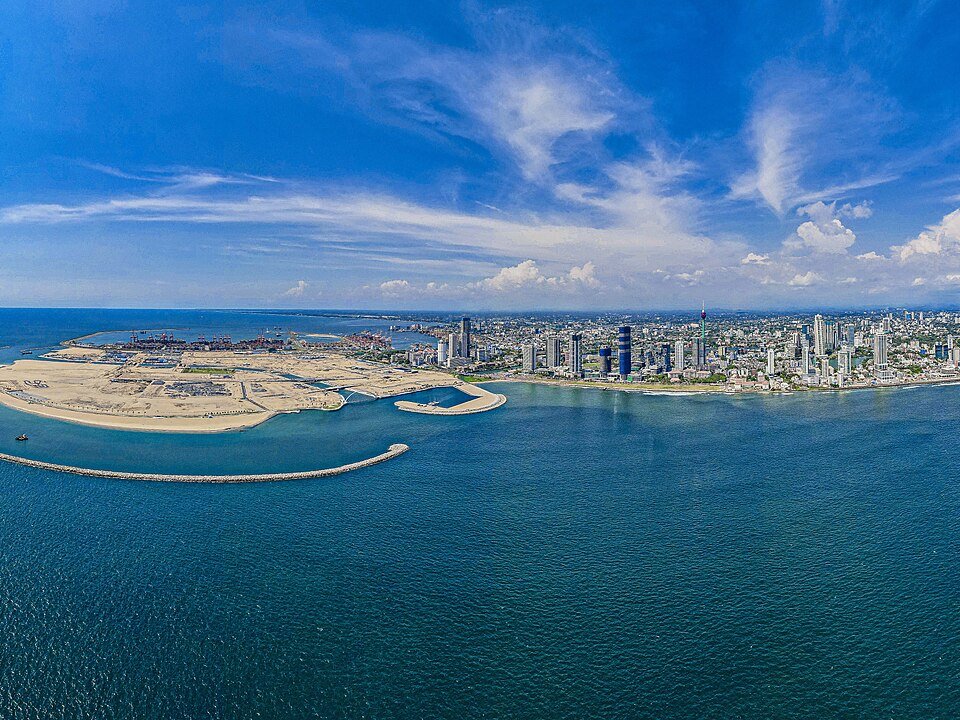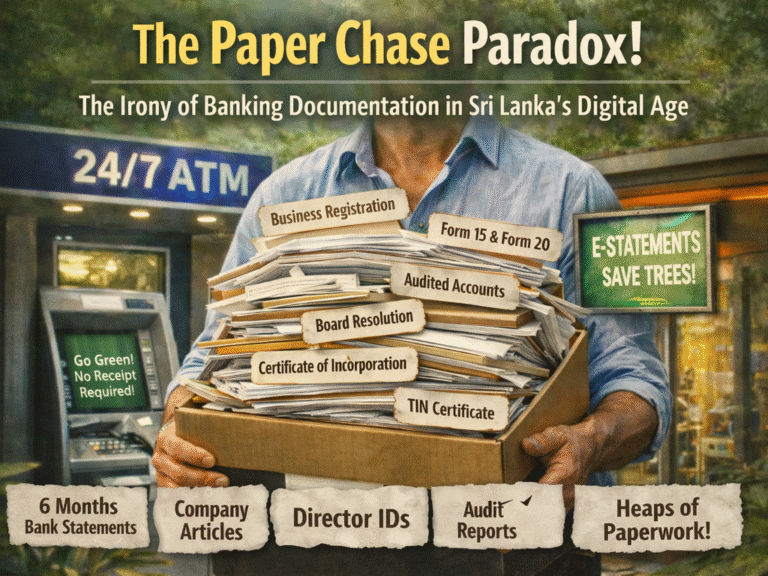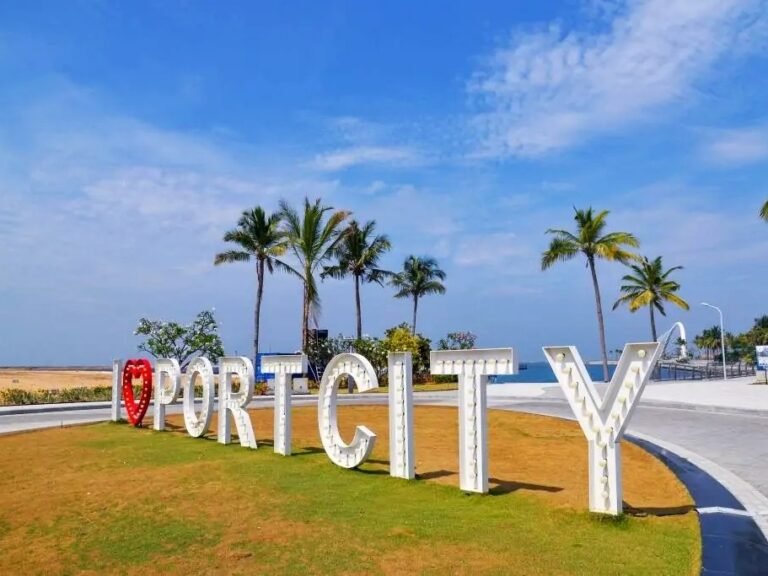“Digital Nomad Republic”: Can Port City Colombo Become South Asia’s Passport-Free Workation Hub?

Introduction: A Visa-Free Future for Work?
In the post-pandemic world, work is no longer tied to geography. Millions of professionals—from software developers to wellness coaches—are abandoning the 9-to-5 office in favor of what is now called the “borderless workforce.” As of 2025, there are over 40 million digital nomads globally, with this number expected to exceed 60 million by 2030, contributing more than $1.2 trillion annually to global economies through spending, taxes, and service consumption.
In this dynamic context, Sri Lanka’s Port City Colombo (PCC) has a unique opportunity: to position itself as South Asia’s first Digital Nomad Republic, through UAE-style visa-on-arrival zones and “passport-free workation” ecosystems. Not just a gimmick for travelers, but a futureproof, policy-backed economic strategy that could shift the country’s trajectory.
Section 1: What is a “Workation Zone”?
The term “workation” blends work and vacation, signifying a new class of mobile professionals who live and work in foreign countries, often for extended periods. These workers typically earn foreign currency, spend locally, and demand a combination of luxury, digital infrastructure, and cultural authenticity.
A passport-free or visa-on-arrival workation zone is a designated area within a country (often within a SEZ or special tourism hub) where:
- Remote workers are allowed visa-on-arrival or digital nomad visas
- There are minimal bureaucratic restrictions
- Residents pay for co-working, co-living, and health services, boosting local economies
- They are excluded from typical labor market protections to avoid burdening the state
- Local startups and freelancers benefit via service exports and collaboration
If Port City Colombo launches such a policy, it could attract 10,000–15,000 long-stay remote workers annually, generating over USD 300 million in service consumption, accommodation, and taxes, based on comparative data from countries like Estonia, UAE, and Portugal.
Section 2: Why Port City Colombo Is Uniquely Positioned
Port City is not a typical real estate venture—it is a Special Economic Zone (SEZ) governed by the Colombo Port City Economic Commission Act (No. 11 of 2021), which allows it to operate semi-independently with its own commercial rules, investment facilitation, and dispute resolution mechanisms.
Unique Enablers of PCC:
- Geopolitical neutrality between China, India, and Western investors
- Tax-free zone with dollar-based operations
- Planned co-working and co-living zones, suitable for digital nomads
- Access to major international airports (Colombo BIA and Mattala via Southern Expressway)
- Planned fintech ecosystem and international banking partners
All these make PCC a policy sandbox capable of experimenting with innovative visa and residency models without compromising national immigration integrity.
Section 3: Global Case Studies
1. 🇦🇪 Dubai Remote Work Visa
- One-year renewable visa for digital nomads
- Requires proof of USD 5,000 monthly income
- Over 14,000 applications approved in 2023
- Contributed over USD 400 million in rental, F&B, and service spending
2. 🇪🇪 Estonia’s e-Residency + Nomad Visa
- Allows foreigners to register a business in Estonia remotely
- Digital nomad visa introduced in 2020
- Over 100,000 e-residents from 170 countries
- Generated €70 million+ in taxes and service fees
3. 🇵🇹 Portugal D7 Visa
- Minimum passive income of €8,460/year
- Digital nomads settle in Lisbon, Porto, and Madeira
- Lisbon alone saw over 12,000 digital nomads in 2022
- Airbnbs and cafes saw 23% rise in revenue
4. 🇧🇧 Barbados Welcome Stamp
- One-year remote work visa
- Minimum income: USD 50,000/year
- Over 2,800 applicants in 18 months
- Injected USD 137 million into the economy
5. 🇮🇩 Bali Digital Nomad Visa
- Proposed five-year visa with tax exemptions on foreign income
- Aims to attract 3.6 million visitors by 2026
- Startups and retreat centers booming
6. 🇲🇺 Mauritius Premium Visa
- 12-month renewable visa for freelancers
- No income tax on foreign income
- Over 4,000 arrivals in 2022
- Local hotels turned into long-term co-living spaces
Sri Lanka can learn from these models and localize them into a hybrid structure suited for a special zone like PCC.
Section 4: Sri Lanka’s Strategic Moment
Sri Lanka’s economy is recovering from the 2022 crisis, with a GDP growth projection of 2.2% in 2025, and foreign reserves gradually stabilizing. But there remains a debt burden of USD 49 billion, high youth unemployment (23%), and brain drain. Digital nomads offer a non-traditional solution:
- They don’t compete for local jobs
- They infuse foreign currency directly into micro-economies (cafes, gyms, Airbnb, yoga centers)
- They can catalyze new service industries (language tutoring, tech repair, health coaching)
- They promote intercultural exchange, global branding, and startup networking
Section 5: The Policy Blueprint for PCC
📌 1. Visa-on-Arrival Digital Nomad Pass
- Valid 180 days, renewable up to 3 years
- Income requirement: USD 1,500/month
- Digital application, AI-powered screening
📌 2. Port City Workation ID
- Allows access to co-working hubs, cafes, gyms, and partner accommodation
- Optional tax contributions for services
📌 3. Startup + Freelancer Incentive
- Nomads can partner with Sri Lankan freelancers via PCC registry
- Allow VAT exemptions for B2B exports
📌 4. Medical & Health Cover Integration
- Optional package with Lankan insurers for wellness, mental health, and emergency care
📌 5. Cultural Immersion Partnerships
- Local universities can offer short-term cultural immersion or language courses
- Promotes interaction with local youth, reducing elite-foreigner isolation
📌 6. “No Passport Zone” for Events
- Within designated area (e.g., Marina Promenade), foreign ID or e-pass accepted
- Encourages vibrant, borderless cultural hubs
If executed right, Sri Lanka can position PCC as a digital cosmopolitan hub, similar to Dubai’s DIFC or Singapore’s One-North—but tropical and more affordable.
Section 6: Economic Impact Forecast
If Port City Colombo implements a digital nomad visa policy, the economic returns could be substantial over a five-year period. In the first year alone, the city could attract around 3,000 digital nomads, generating an estimated USD 75 million in direct revenue. By year three, this number could increase to 9,000 nomads, contributing approximately USD 210 million, and by year five, a projected 15,000 nomads could inject over USD 330 million annually into the local economy. Job creation would also scale alongside these inflows—from 1,500 new employment opportunities in year one to over 5,000 by year five, spanning sectors such as hospitality, coworking spaces, wellness, creative services, and local logistics. Tax contributions from services and consumption are expected to grow from USD 1.5 million in the first year to USD 7.5 million by year five. Beyond these direct figures, the policy could spur several indirect benefits: a rise in boutique tourism brands such as Airbnb Plus listings and slow-travel hostels, a boost in skilled service exports by Sri Lankan freelancers, and the formation of foreign-owned startups sourcing design, coding, and legal services locally. Most importantly, it would enhance Sri Lanka’s reputation as a progressive, forward-thinking nation at the forefront of global remote work policy.
Section 7: Risks & Ethical Concerns
While this model has potential, it must be approached with legal and social safeguards:
- Avoid gentrification that prices out local residents
- Ensure background checks and data protection
- Avoid over-commercialization of local culture
- Protect national security (e.g., no anti-state propaganda)
- Include a grievance redressal mechanism under Port City Commission
Proper legal design must respect the Immigration Act No. 20 of 1948, the EPF/ETF frameworks, and Sri Lanka’s Digital Data Protection Act No. 9 of 2022.
Section 8: Conclusion — A Borderless Colombo?
A Port City-based nomad visa is not about offering free access to foreigners. It’s a calculated, policy-backed economic growth mechanism that allows Sri Lanka to earn foreign currency, generate employment, and reposition itself as a Global South innovator in digital-age migration.
In a world where “nation-states are becoming platforms”, this is Sri Lanka’s chance to invite the world—not as tourists, but as neighbors, teachers, coworkers, and friends.
It’s time we stop waiting for backpackers or mass tourism to recover and instead, boldly design a passport-free digital corridor where Colombo becomes a city of codes, cafés, and cultures. A city that doesn’t just recover—but reinvents.
Disclaimer
This article has been authored and published in good faith by Dr. Dharshana Weerakoon, DBA (USA), based on publicly available data, professional experience, and industry insight. It is intended solely for educational, journalistic, and public awareness purposes. The author accepts no responsibility for any misinterpretation, adaptation, or misuse of the content. Views expressed are personal and do not constitute legal or financial advice. This article complies with the Intellectual Property Act No. 52 of 1979, the ICCPR Act No. 56 of 2007, and relevant data ethics. ✍ Authored independently and organically—not AI-generated.
Further Reading: https://gray-magpie-132137.hostingersite.com/carbon-credits-from-spice-forest-conservation/






